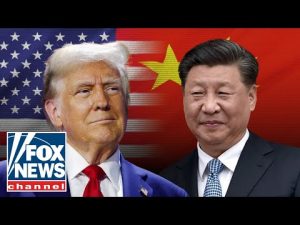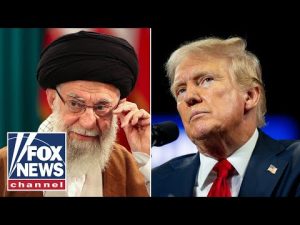In a recent appearance on a popular conservative news channel, a former journalist made headlines for her troubling comments regarding violence in political discourse. Taylor Loren, who previously contributed to the Washington Post, found herself at the center of controversy after she seemingly celebrated the murder of a United Healthcare CEO by a man named Luigi Manion. This incident raises significant concerns about the moral compass of those who seem to endorse or overlook violence as a solution to political disagreements.
During her exchange with host Sean Hannity, Loren was confronted with the moral implications of her position. Rather than outright condemning the assassination, she deflected, focusing instead on broader issues within the healthcare system. While it’s important to discuss the high cost of healthcare and the impact of insurance practices, such discussions should not excuse or justify any form of violence. By attempting to pivot the conversation, Loren exemplifies the troubling trend among some on the left who seem willing to rationalize violence for the sake of political expression.
The crux of Loren’s argument appears to be the belief that systemic problems in healthcare lead to tragic outcomes, such as the death of the CEO in question. However, this perspective dangerously skirts the moral line. An issue can be deeply troubling without resorting to the radical notion that violence is an acceptable remedy. Supporting the idea that violence can be justified based on political arguments is not only cavalier; it undermines the very foundations of democratic discourse.
Data shows that a significant portion of Americans—70%—believe that insurance company practices contributed to the death of the CEO, reflecting a genuine frustration with the healthcare system. However, one must ask: does this justify violence? Emphatically, the answer is no. Advocating for systematic reform through appropriate channels—such as legislation, voting, and public dialogue—should always be the aim. The moment violence is thrown into the mix, all sense of civil discourse is lost.
In an era where political tensions are already high, the last thing the country needs is a contingent that views violence as an acceptable form of protest or expression. Each day, millions of Americans engage in political conversations without resorting to physical threats or violence. The responsibility lies with all individuals, particularly those with a platform, to speak against violence unequivocally. Encouraging rational debate and promoting solutions rooted in dialogue will lead to better outcomes for all involved, regardless of political affiliation.
The left’s acceptance—or at least, questioning—of violence as a form of political expression does not only endanger the fabric of democracy; it also risks undermining the very movements they claim to champion. In a society that values progressivism and reform, it is crucial to prioritize peaceful measures. Ultimately, while it may be tempting to dismiss moral imperatives in favor of political narratives, the call for a united front against violence should resonate louder than any individual political agenda.







